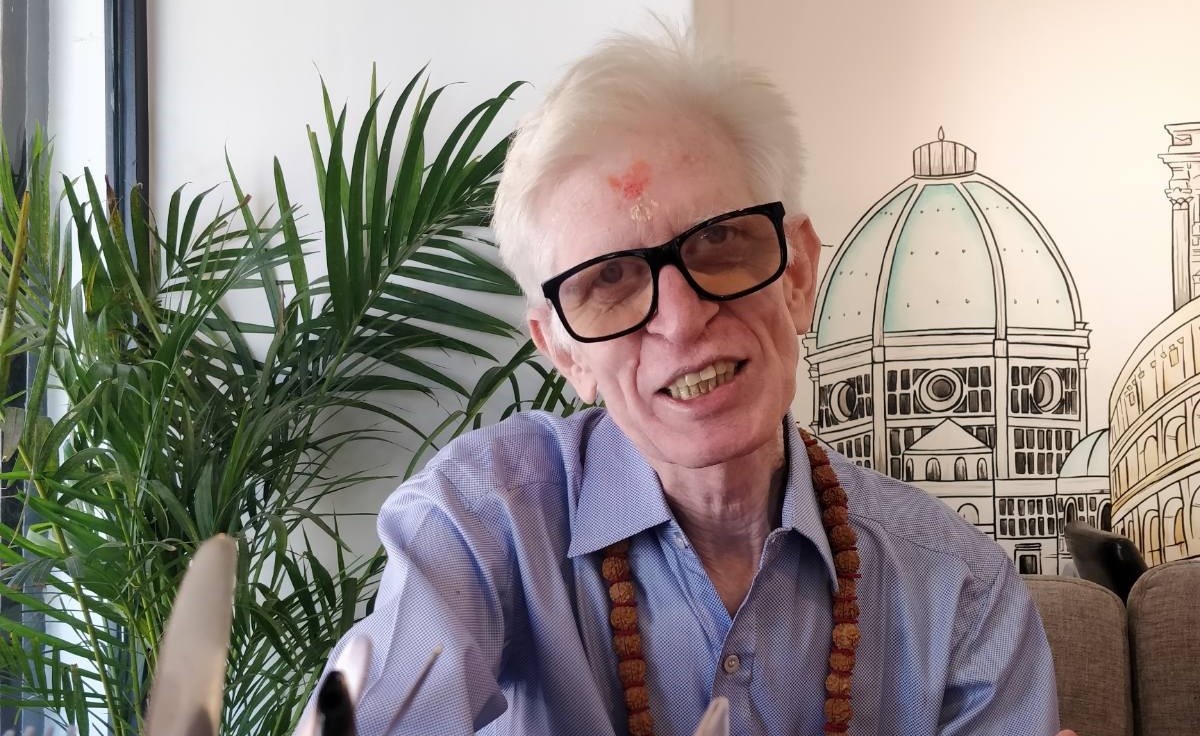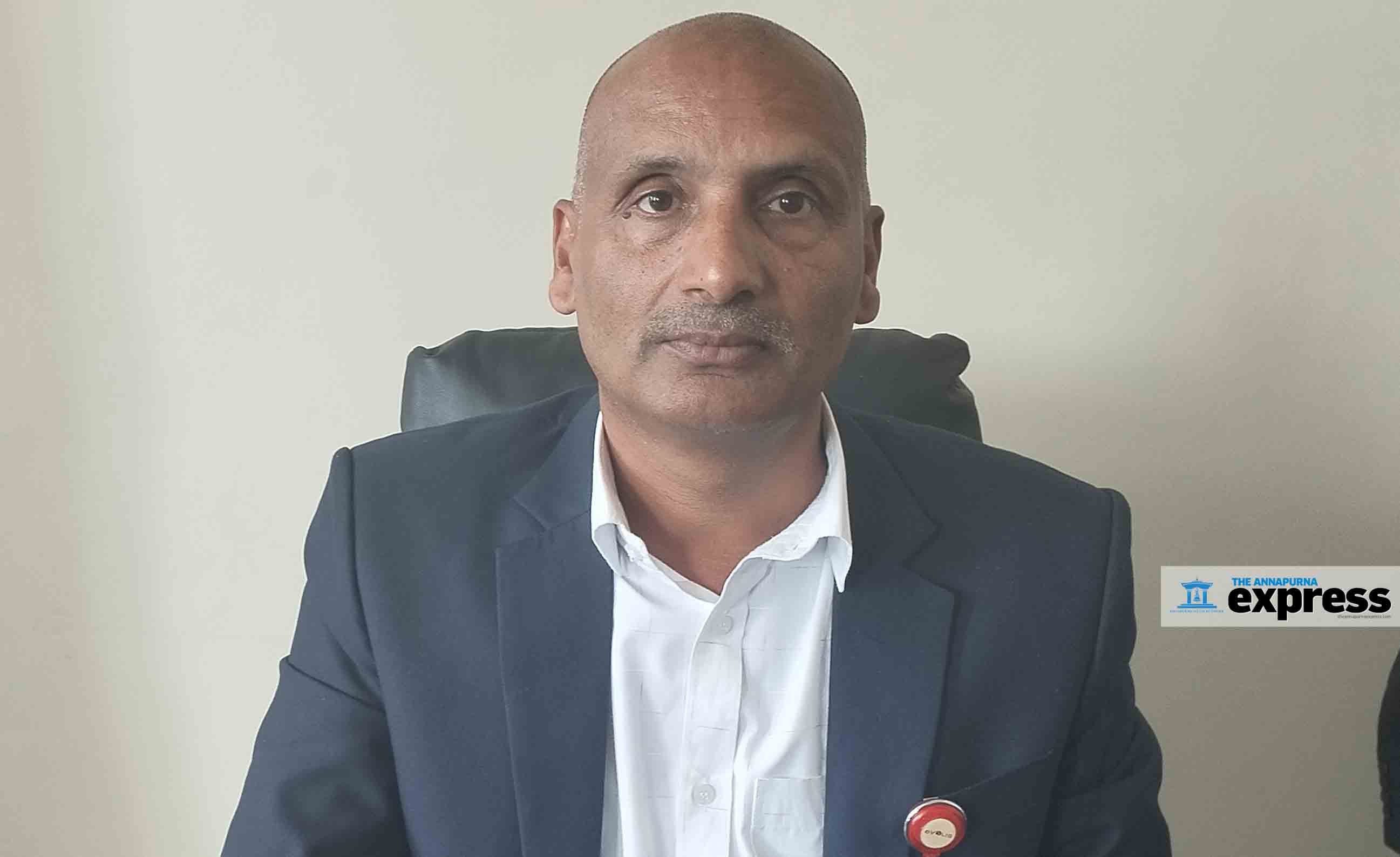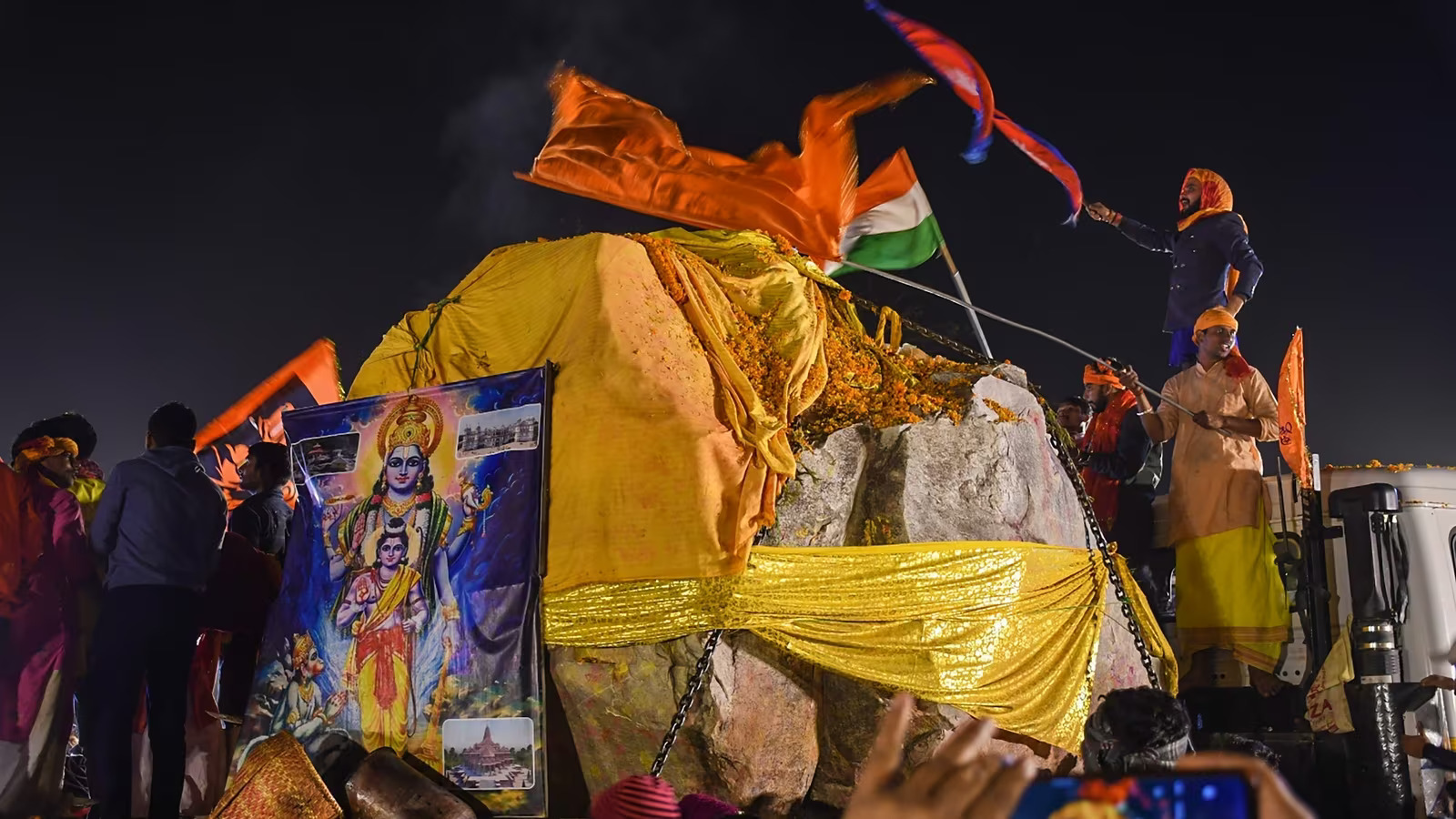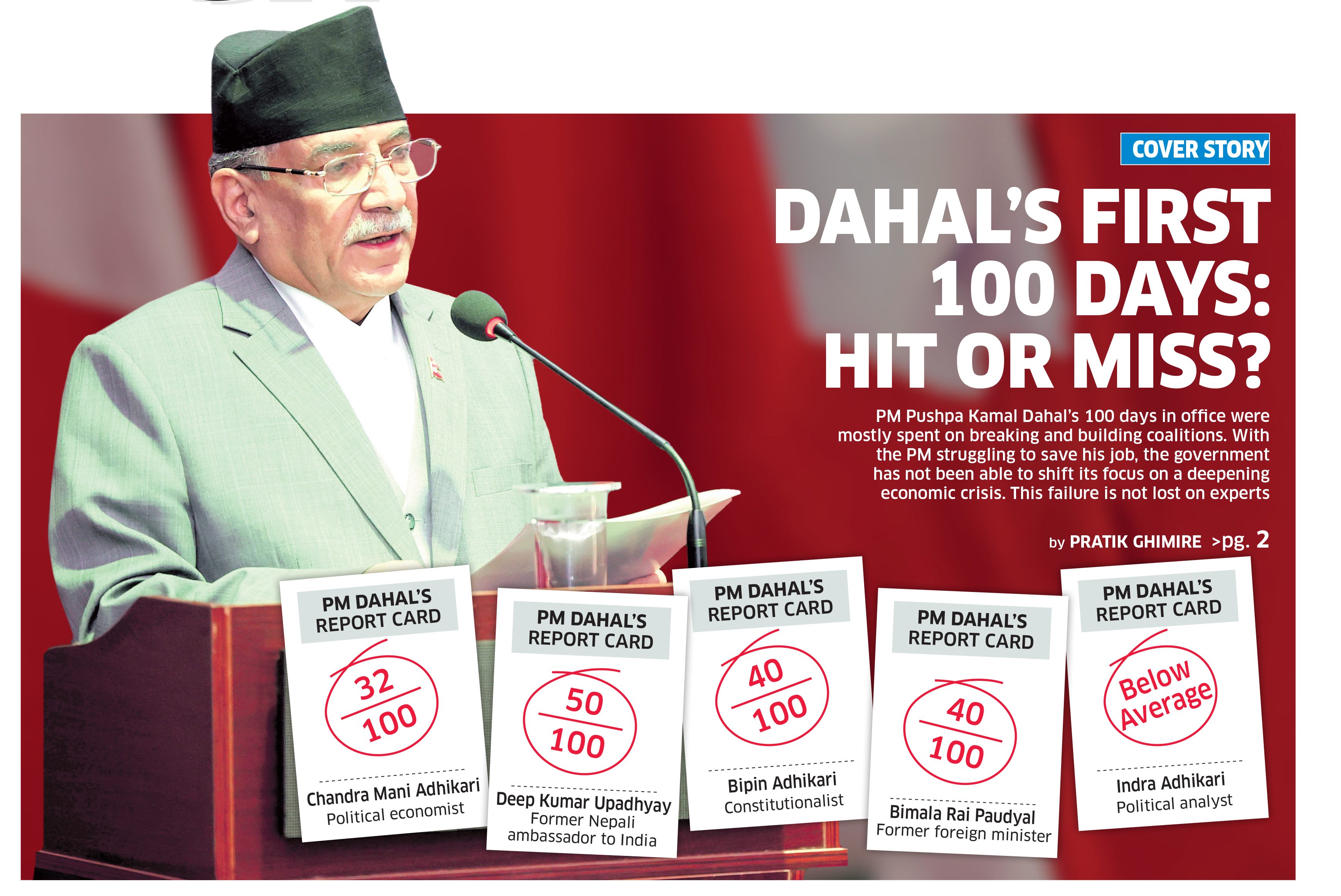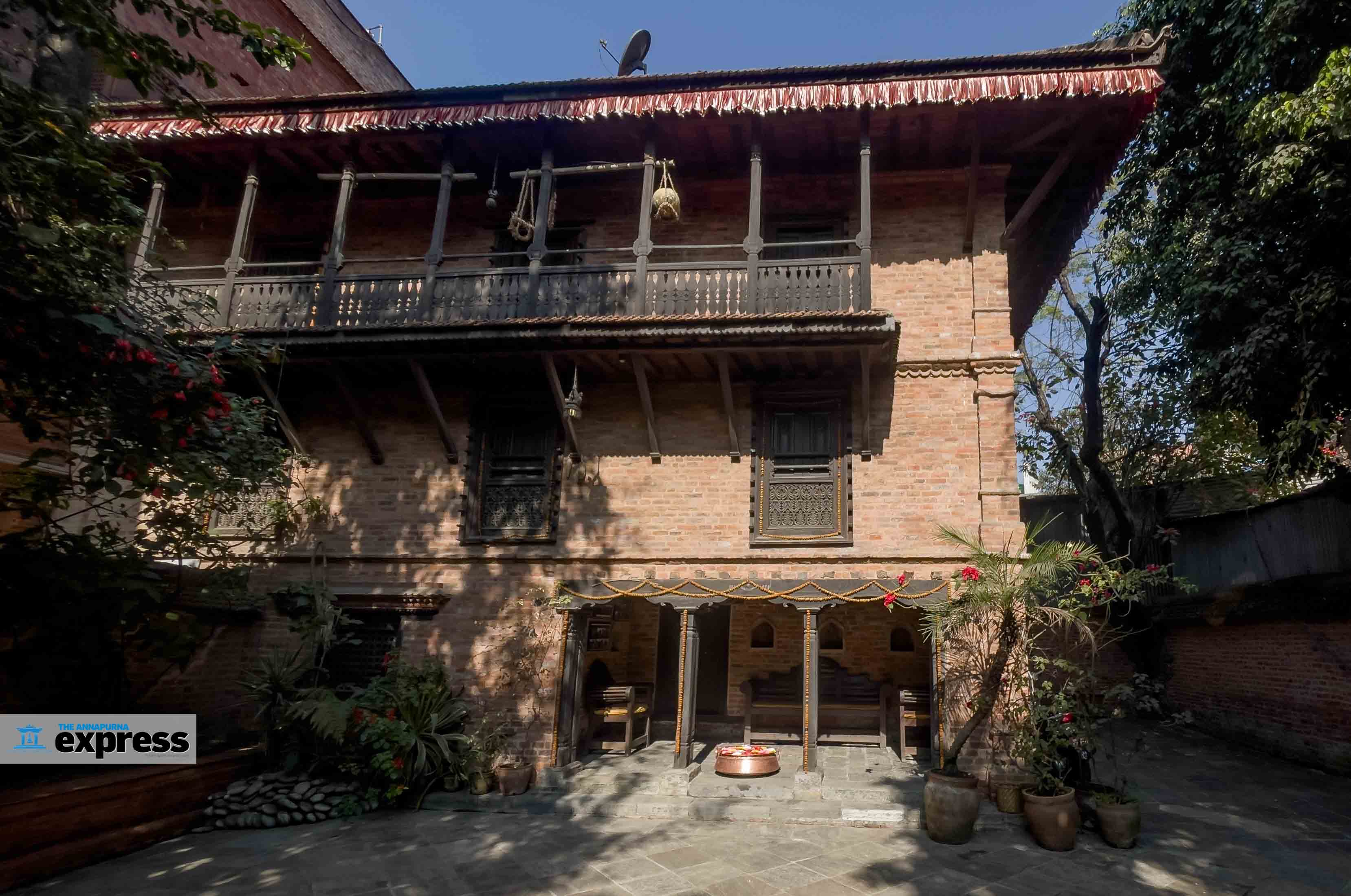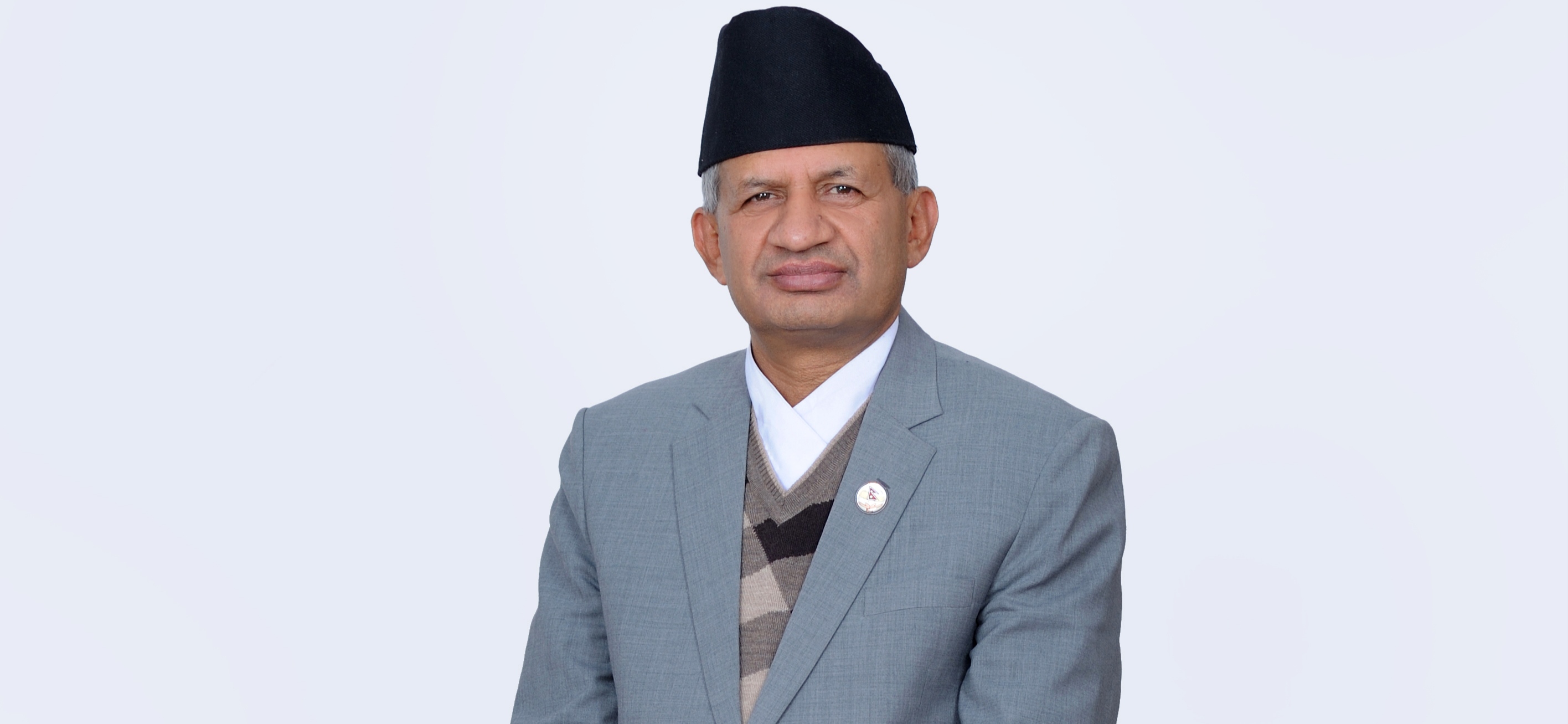Arvind Agrawal: Internal correction, deep awareness will set the market right
Arvind Agrawal is a renowned academician who specializes on the relationship between society and market. A PhD in Business Management from JJT University in Rajasthan, he has penned several books on society, market and a wide range of other issues. Pratik Ghimire of ApEx speaks to him about topics ranging from consumerism to religion to market ethics.
Modern society is governed by the market, so much so that the market is eager to sell even death. What is your view on the age of rapacious consumerism?
How pertinent a question to begin the conversation! Death, that you brought up being made a commodity, is eternal. Our Eastern way of handling it has been to live life preparing for Moksha. We always balanced, and in the East we do so to a great degree even today, a balance among four pillars—Dharm, Arth, Kasm and Moksha. Becoming market centred is only a recent aberration. If being greedy for aggregation, monopoly and profiteering is unethical on the part of capitalists, being an excessive consumer is unethical on part of the common person.
There’s nothing wrong in enjoying materialistic comforts, provided we, both the buyers and business owners, can observe the much needed balance, and the good news is that it isn't impossible. Human society is quick in learning, and to trigger the awareness, I've provided starting points in my book ‘Addwit Vyavsay Upanishad’ for business owners, and in a very small handbook Kasht Customers Ke for the common people who are 24x7 consumers.
You talk about balancing Dharm, Arth, Kasm and Moksha, which are part of the Vedic culture. How do you think this culture could be applied to create an ethical market practice?
Let me break up my response into two parts—ethical, vedic. The meaningful transliteration for UNETHICAL BEHAVIOUR is BHRASHTACHAR, which is BH4ASHT+ AACHAR, the behaviour which is a deviation from natural one, the SVABHAV. The materialistic lifestyle that we live today, something that we take as status symbol, something without which we are made to feel non-progressive, has been pushed systematically after industrialization, which took place about 350 years ago. If we go back 1500 and earlier, the East had been the bedrock of prosperity and much superior lifestyle for entire humanity.
Talking in today's glossary, we produced as much as 35 percent of global production. That gets us to the second part, VEDIC. in general when we utter this word, the impression we get is—something that WAS, the PAST, something to do with GRANTH, the scriptures. No it's not so. Vedic, Sanatan, Puratan. One of the meanings of Puratan also is, that which doesn't get old or outdated. So, in whatever way, vedic is even concurrent.
And, looking back as per the needs and circumstances this way of living has given treatises on a wide range of themes—from Kathopanishad to Kaam Sutra, and from Shiv Sutra to Mahabharata, from Vimaniki to Agni Puraan. Perhaps it is in this continuum that yours truly has been used by the Cosmic Being to provide an Upanishad to set right the anarchical forces in the market and economy. Vedic system if we stick to the word VEDIC, for the economy had been socio-nonics—based on a social process rather than industrial process.
This social process had as its hallmarks—(1) the four pillars we already discussed, and (2) a way of life where nature was never exploited; in NO WAY we hurt nature, we rather respectfully nourished it.
Do you think people are ready to adopt that culture? And how shall we ensure that the market will always be the same?
Well, if we are frustrated about materialistic lifestyle, and also we aren’t ready for the Vedic lifestyle, then what alternative third option do we have? There simply isn’t any. We, the people and culture of the East can not only live by balancing among Dharm, Arth, Kasm and Moksha because we have never really given it up; but also in a way onus lies on us to show to the rest of cultures and ideologies that such a balanced living is not only possible but also good for future and nature.
How to ensure that the market remains alive?
Well yes, if you notice, among the four pillars, two elements, the Arth and Kaam, pertain to the market. So, we can be sure that the socio-nomic system will remain alive and kicking. Its appearance could be different because it operates more like a self regulated system rather than one that we see today—the market regulated either by government or by capitalists or jointly by both. In fact that’s one reason capitalists and government may not be too keen to let vedic socio-nonics happen, but let me also quickly caution—it will be a short-sight at least on part of policymaking because colonisation today is practised in form of remote control on other country’s people’s buying capacity. I can detail this up separately.
About 95 percent of the global wealth is controlled by the 5 percent rich. With this imbalance of wealth, will the market ever be ethical?
You’ve brought up the true nature of the scenario into this discussion. If not that extreme like Mahabharata yuddha, we will see (and be part of) at least a major rally of corrections. As far as I can see, this will happen in a very organic manner. I’m saying this based on my experience of interactions with investors and capitalists—many of them too are human beings, and one part of their soul is longing for overcoming the vicious cycle of earning more money. The West has started taking the purpose of capital to quote the title of one book recently published.
In fact I affectionately pity them that the four pillars of Dharm, Arth, Kasm and Moksha have not been available in that culture. Through ‘Addwit Vyavsay Upanishad’, which is less a book and more a framework, we can take one baby step. I'm not saying things will get set right within 1 year or five years. The harm caused by 400 years of industrialised aggression may take anything like one full generation to be corrected, but that will be our gift to our future generations.
According to the laws of nature, only the ripe ones fall and prepare seeds for the next tree. Has today’s market become too ripe or rotten?
How nicely you’ve articulated—ripe or rotten! Superb! I feel a bit incompetent to guess whether the market with its baggage of unethical business practices is ripe or rotten. However I do know that in the same Mother Nature there are worms and bacteria too. For Nature (which is more than trees, animals, rocks and rivers), nothing, mind you NOTHING is too big to tackle.
The day unethical business practices cross that limit, Mother Nature has unimaginable tools, few of that we know—tornadoes, earthquakes, cyclones. All this not to scare, but to draw the point that Nature works in most unimaginable ways, and one of its methods is also to keep correcting human instincts. Time and again we ask ourselves—is whatever that I'm doing right, is it true to my own nature, does it give me the sense of fulfilment? This reflective thinking will get us back to our SVABHAV, the innate behaviour.
By that innate behaviour we truly are not excessive consumers as we've been made to become by the industrialised society. This internal correction, this deep awareness will set the market right. In Vyavsay Upanishad this theme has been covered, and to quote one sentence from there—the nature of Nature is to give more than it received. When we will go back to our own nature of giving more than receiving, the market will automatically start behaving ethically. It is only the unaware who can be manipulated. Let’s be aware.
In the Arth Yudfha, we all are Arjun in our own small way. We cannot afford to remain confused, we cannot afford inaction on our part.
Bikram Raj Gautam: Profit should not be calculated with the money airport makes
The Pokhara International Airport (PIA) was inaugurated on 1 January 2023 by Prime Minister Pushpa Kamal Dahal amid much fanfare. However, the business of the third international airport in Nepal has not been as expected since its inception which has put a question mark on the viability of the new airport. Critics argue that the airport is a debt trap project as it was constructed with a $215m loan from China’s Exim Bank in 2017 and not a single international flight has been operated from the airport ever since its inauguration.
Pratik Ghimire of ApEx sat down with Bikram Raj Gautam, Chief of PIA to talk about the business the airport is up to. Excerpts:
Can PIA make a good business?
Definitely. We have a target market. We can target the Indian and Chinese markets as many tourists from our neighboring countries visit Nepal and many of them come to Pokhara. Also, we can target Nepalis who are in the Gulf countries for employment. We can also connect to the United States, Australia, the United Kingdom, and other countries where Nepali students go for higher studies. Data shows that around 40 percent of tourists who visit Nepal come to Pokhara. We have the opportunity to connect them directly to Pokhara. So, there is no question about the viability of PIA. I have spent around 26 months in this airport, and with my experience and research, I can say that there is enough space for business.
On the last World Tourism Day, we invited representatives of many international airlines operating in Nepal. We’ve found that they are positive about the opportunities and possibilities of PIA. They are also doing their part of the homework and research for their operation from PIA.
It’s not that nothing has happened. It is natural for entrepreneurs to look for someone who can initiate operations in new business and others will jump by analyzing the initiation. The same thing is happening here. Moreover, a business is an environment. To run it smoothly, every small thing matters. From the legal policy to the behavior of flight attendants, everything matters to help PIA run smoothly.
Each of us should take ownership of this airport as it will help to boost the regional and national economy. Everyone should contribute to the maximum utilization of this airport.
Has there been enough lobbying to run this airport?
Yes. All tiers of the government have been doing as much as they can. All other stakeholders concerned are also doing whatever they can do from their levels. But what I have felt is, we have to be united and have the same voice regarding the PIA, and then only the result will come. For example, the private sector and government should share their plans and problems with each other and should work together.
Also, nothing is more effective than word-of-mouth promotion. For instance, for my foreign friend, my recommendation to visit Nepal is more effective than any kind of other promotional or advertising material. So, we should keep up to support PIA in these ways. 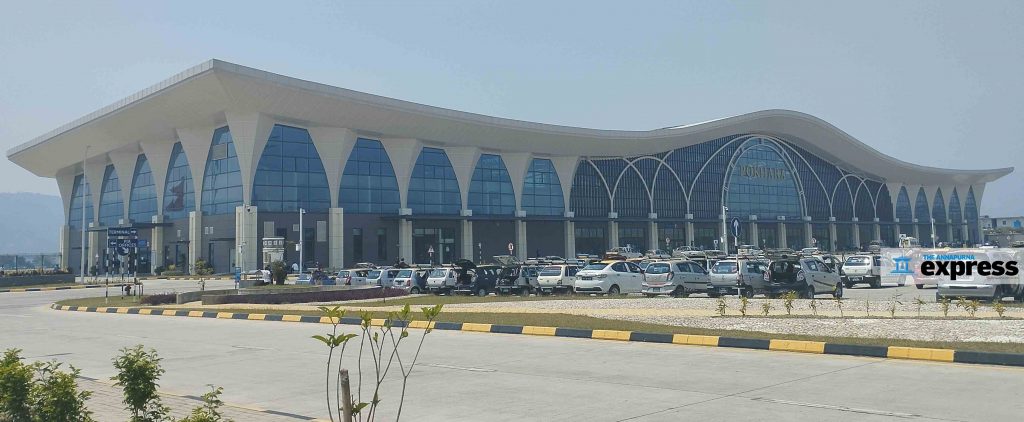
Critics say that the loan that Nepal received to develop PIA can actually turn into a debt trap for the country. How do you view this argument?
The construction of this airport cost around Rs 22bn. We won’t be able to make a profit instantly as it is a long-term investment. The profit of PIA should not only be calculated in terms of the airport’s earnings. But rather we should see how much help the airport provides in terms of services to passengers, small and large-scale tourism businesses and the development of Pokhara city, among other factors.
We provide domestic flight service from this airport for 18 hours a day. Around 3,000 passengers are getting services from here daily. From the domestic operation, we earn around Rs 300m annually. And as soon as we start a few international flights, we can easily earn Rs 1bn annually. So, the development of PIA is not a ‘debt trap’. The Civil Aviation Authority of Nepal (CAAN) also analyzes our business.
There have been issues with birds. Is the airport technically in a safe location?
Pokhara is home to a lot of bird species. Among them, there are around 108 bird species around the PIA vicinity. We can’t imagine the sky without birds. It’s a part of nature and the same thing applies in all the airports across the globe. This issue is not with us only. We have to ensure that the planes fly at a distance from birds.
We are doing our best in this regard. From regular patrolling to using scaring devices, reflectors and trimming grasses, we have been doing everything at our disposal. I think not many airports in the world use better systems for the management of birds like us. Since the start of the operation of the airport, the activities of birds have significantly reduced. However, we can’t have skies free of birds.
How do you ensure that PIA is among the technologically best airports in Nepal?
We have been using top-notch technology and equipment that an international airport needs to have. There has been no compromise in this respect. For example, we have Instrument Landing System technology in PIA that no airport in Nepal has used. The Gautam Buddha International Airport has this technology too, but they haven’t used it yet. Similarly, we have many other similar technologies with international standards.
Then why is the public negative about the airport?
It’s all due to sentiment. Initially, everyone was positive about this project. Not only the ordinary people but also the private sector, media, and all stakeholders supported us. But after the recent plane crash of Yeti Air, everyone started having second thoughts about the airport. Yet, there was no issue on our side. All of our technology, equipment and system are in perfect condition. Soon after the inauguration of the airport, people saw the crash near the airport which affected their sentiments to a great degree. But we are growing and everything will be better with time.
Which international airlines are in contact with PIA for flight operations?
We are in regular touch with Korean Air, Jazeera Airways, Thai Smile Airways and Fly Dubai. Yet, there is nothing agreed upon as of now.
Expensive Parliament
In a single day, the Parliament Secretariat spends more than 1m in the various sections. It includes the rent of Parliament buildings, allowances, transport fees and other expenditures. But, both the House of Representative and National Assembly have made very little or little progress in the law-making.The new parliament elected from Nov 9 elections has not passed even a single bill. On several occasions, lawmakers go to Parliament only to register their attendance. The list of abuse by lawmakers goes on.
The daily rent for the Parliament building is Rs 416,000, while Rs 550,000 is allocated for allowances and transport fares of lawmakers, and another Rs 100,000 is earmarked for miscellaneous expenses. This translates to a total expenditure of Rs 20m on parliamentary meetings. Lawmakers have expressed dissatisfaction over the government's failure to provide adequate business to the parliament.
The parliament has been devoid of any meaningful business as the government and parties were preoccupied with the formation of the government and the elections of the President and Vice-president. In the four months since the election, the parliament has managed to draft House of Representatives Regulations.
Additionally, several bills including the Prevention of Money Laundering and Promotion of Business Environment Bill, Enforced Disappearances Enquiry, Truth and Reconciliation Act (Amendment) Bill, Food Hygiene and Quality Bill, and Constitutional Council (Functions, Duties, Powers and Procedures) Act Amendment Bill have been tabled for discussion in parliament. The government aims to expedite the Enforced Disappearances Enquiry, Truth and Reconciliation Act (Amendment) Bill through a fast track process.
However, the main opposition, CPN-UML, has been insisting that the discussion on the Bill should take place in parliament. The government was also expected to table the Nepal Citizenship Act Amendment Bill which was previously refused authentication by the former President Bidya Devi Bhandari. The government has not yet tabled the bill.
Furthermore, the government has not tabled 28 bills, which become inactive automatically with the end of the previous parliament’s term, in parliament.
The Federal Parliament Secretariat has been providing Rs 18,000 as house rent allowance to members of both houses who do not have a residence in Kathmandu Valley. However, lawmakers, who have their own house in the Valley, have been collecting Rs 9,000 as house maintenance allowance every month. According to the secretariat, out of 124 lawmakers, who have residences in the valley, 123 are collecting house rent allowance from the secretariat every month. Sunil Sharma of the Nepali Congress is the only lawmaker who has refused this allowance. Staffers of the secretariat showed Sharma wrote to the secretariat stating that he doesn’t need a house maintenance allowance.
Several prominent lawmakers, including NC President Sher Bahadur Deuba, CPN-UML Chairman KP Sharma Oli, CPN (Unified Socialist) Chairman Madhav Kumar Nepal, Rastriya Swatantra Party Vice-president Dol Prasad Aryal, and Rastriya Prajatantra Party Vice-president Bikram Pandey, among others, have been availing themselves of the house repair allowance.
Abdul Khan: Defeating Upendra Yadav is a piece of cake
The CK Raut-led Janamat Party recently left the government. Abdul Khan had represented the party in the cabinet with the portfolio of the Ministry of Water Supply. Pratik Ghimire of ApEx caught up with Khan to talk about the party’s plans for the April 23 by-election and other political matters. Excerpts from the interview: Why did you leave the government? Our impression is that Prime Minister Pushpa Kamal Dahal and other coalition partners didn’t value our participation. We felt that several times. First, they promised to give us the Ministry of Industry, Commerce and Supplies, but then they balked and handed us the reins of the Ministry of Water Supply instead. When the coalition changed, without our demand, Dahal publicly pledged to us the Ministry of Industry, only to eat his words later on. We felt humiliated and left the government. Like other political parties, your party has also started a power game, hasn’t it? If we were in the power game, why would we quit the government instead of bargaining? Our party is always committed to our values and we will never be a part of dirty politics. Other Madhes-based parties enjoy the luxuries of Kathmandu and forget their constituencies. Isn’t your party on the same path? That’s not true. Our party chair and all of the parliamentarians visit their constituencies often and pay heed to the problems of local communities. Sadly, our performance is short of public expectations. How are your party’s by-poll preparations going on? The preps are going great. Our main focus is on Bara-2 where we enjoy widespread public support. Bara-2 is the pocket area of Janata Samjbadi Party. They won the Nov 20 polls there without a coalition. Do you think your party will be able to defeat Upendra Yadav this time, when he has a ruling coalition behind him? Our candidate Shivachandra Prashad Kushwaha is from Bara-2 itself (he is not an outsider), which is our main strength. He was defeated in the Nov 20 polls in the same constituency with only 400 votes. At that time, he was contesting from a different party. Our candidate has huge public support. What’s more, the people have already witnessed our commitment and it has become clear to them that we are different from other political parties. So, he will get more votes this time as he has joined our party. As for Yadav (the rival candidate), he failed to win from his home constituency in Saptari. How will he win in Bara-2 as a tourist candidate? We will win comfortably.
Shaligram diplomacy in limbo?
In the first week of February, Nepal dispatched two Himalayan rocks sourced from the Kaligandaki river to Ayodhya, India, based on a formal request from a committee tasked with the construction of a new Ram Temple there. The idea was to carve out idols of Ram Lalla (Lord Ram as a child) and install one of them on the sanctum of the Ayodhya Temple and another on the temple premises. Or that is what the Nepali side thought.
After receiving the request for the rocks from India, a team consisting of geologists, religious figures and political figures scurried the banks of the Kaligandaki in search of perfect rocks for the idols, in coordination with local, provincial and central governments. They found two huge quartzite and calcite rocks at Thulo Pahiro in Myagdi district.
After performing Kshamapuja on the banks of the Kaligandaki with the participation of Nepali and Indian team members involved in what many described as part of Shaligram diplomacy, the idols were dispatched to the Indian holy city with devotees queuing up along the way to worship the idols. All that spectacle was seen as a victory of ‘Shaligram diplomacy’. But now, things seem to have changed a bit, with indications that the rocks may not be used for carving out the Ram idol and installed at the inner core.
Kul Raj Chalise, one of the persons involved in the process of selecting and dispatching the rocks, says Nepal decided to send those rocks following a formal decision from the Indian side. But, according to sources, the Ram Temple Construction Committee has conveyed a message saying that they are unlikely to use the rocks from Nepal to make the idol of Ram idol. It has hinted that the rocks may be put on display on temple premises.
Nepali Congress leader Bimalendra Nidhi, who had played an instrumental role in identifying the rocks and dispatching them to Ayodhya, is heading to Ayodhya to consult with the trust authorities. Nidhi said: “We decided to provide the sacred rocks for carving out the main idol of Ram, so this understanding should be honored.”
The Hindu quoted chairman of the construction committee of the trust, Nripendra Misra: “There is already one idol of Ram Lalla there, but we have to have another deity, just behind the original idol. Apart from the rocks from Kaligandaki, rocks from Odisha and Karnataka are also being tested for the idols. Sculptors will test sacred rocks brought from Nepal to Ayodhya to find out whether they can be used for carving out Ram Lalla’s idol which will be placed at the sanctum of the upcoming Ram temple on its first floor at Ram Darbar.”
100 days scorecard of Prime Minister Dahal
Pushpa Kamal Dahal was elected to the post of prime minister for the third time on 25 Dec 2022. He won the vote of confidence on Jan 10. But within two months into the office, coalition partners CPN-UML, Rastriya Prajatantra Party, and Rastriya Swatantra Party pulled their support from the government. Dahal subsequently forged a new coalition with the Nepali Congress and took the second vote of confidence on March 20. The 100 days of Prime Minister Dahal was mainly spent on power-sharing negotiations and coalition building exercises. Governance-wise, very little was accomplished, as several ministries were without ministers for a long time. In this context,
Pratik Ghimire of ApEx asked some experts and politicians to grade the performance of Prime Minister Dahal out of 100 marks.
Chandra Mani Adhikari, Political economist
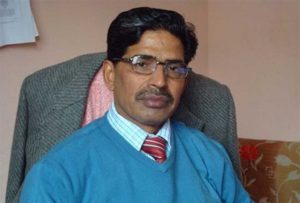
32 out of 100
Prime Minister Dahal spent most part of the past 100 days managing the expectations of the ruling parties and in power-sharing negotiations. While he did make time to meet with economists and businesspersons to discuss the country’s economic problems, he didn’t take any initiative to introduce plans and policies to fix them. This is an unusual situation. Inflation is on the rise, imports and exports are down, production is low, and people's purchasing power have decreased. The government should already have come up with a new budget and published its plans and policies to address the ongoing economic crisis. Now the Ministry of Finance, and the National Planning Commission has a lot of work to do in a short period of time, and with limited resources. Many regular programs are behind schedule. I can’t give Prime Minister Dahal and his government more than the pass marks. I am giving him the pass marks only because the prime minister has assured the business community that he will make things better.
Deep Kumar Upadhyay, Former Nepali ambassador to India
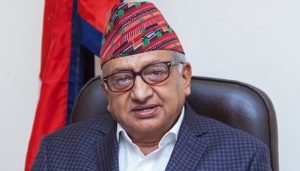
50 out of 100
The government has not appointed its foreign minister yet. This is definitely not a good sign for our foreign relations and policy. Prime Minister Dahal didn’t go to the Boao forum, and he is planning for an official visit to India, which seems immature because there hasn’t been any preparations. This government has not done any work worth appreciating so far. This is the time to work, not talk. I hope the government will focus on its work. The political parties are busy breaking and making coalitions. The Cabinet was expanded after so much political drama, but some important ministries are still vacant. The parties don’t know how to work, and they are blaming one another. Youths these days laugh at and mock politicians and ministers. Why? Because they have no hope from them. We are yet to see what type of common minimum program this government will bring to deal with the challenges facing the country. So I am still willing to give this government the benefit of doubt, and give it 50 out of 100 marks.
Bipin Adhikari, Constitutionalist

40 out of 100
The 100 days of the Dahal-led government was marked with desperation. Prime Minister Dahal spent most of the time scrambling to restore stability to his government because his coalition partners backed out within months. The government coalition changed twice in the past 100 days, and Dahal had to take the floor test as many times. The government is still not stable. Parties are joining and leaving the government, and the Cabinet expansion process is still ongoing. There has been no socioeconomic progress at all. One can’t even say if the situation has gone bad or worse, because the government has not done any work yet. There has been no preparations whatsoever to prevent the imminent economic downfall. The government is also planning to award India a new hydropower construction project during Prime Minister Dahal’s visit. This is not a good idea, as India has been unable to deliver other projects within deadline. This has not been a good start for Dahal. I give him and his government 40 out of 100, assuming that 40 is the pass mark. I am giving the pass mark because there is law, order and peace in the country, and there hasn’t been any major legal controversy.
Bimala Rai Paudyal, Former foreign minister
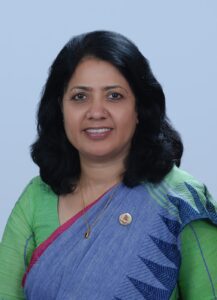
40 out of 100
In the initial days, the government was working at a full pace. I can attest this with my own experience as a former minister of this government. Prime Minister Dahal used to promptly sign the files forwarded by my ministry. But as soon as the disputes over the presidential polls started, the prime minister’s engagement shifted toward forming a new coalition, rather than focusing on government work. He began delaying the approval of files. And after the UML, RPP and RSP left the government, Prime Minister Dahal delayed the expansion of the Cabinet. For a long time, he kept several ministry portfolios to himself. I know how much work a full-time minister has to do in a day, so there is no way one individual could handle the work of 16 ministries. Naturally, the government was unable to focus on service delivery. But I must say that the Ministry of Communication, and the Ministry of Agriculture did perform well during the initial days of this government. I give this government 40 out of 100 marks, hoping it will start performing.
Indra Adhikari, Political analyst

Below average
I can’t say that this government has not got a passing mark, because there is at least a legitimate government in place. So, the government has passed the exam already, although its performance so far has been below average. The 100 days of Prime Minister Dahal was mainly focused on survival and forming a stable coalition. So when the time came for Cabinet expansion, the political parties were not looking for leaders who could deliver, but someone whose appointment could balance the government. The Cabinet expansion delay has also shown us that there is no organizational structure and system in place to keep our bureaucracy functioning smoothly. Though there are certain rights that the bureaucracy can utilize for service delivery, it has not been using these rights. Our bureaucracy has the tendency of waiting and looking for ministers to show the way. As the Cabinet expansion was delayed, the ministries without ministers could not perform their tasks, which affected the overall service delivery.
A closer look at Namuna Ghar (Photo Feature)
The Namuna Ghar in Datattraya, Bhaktapur, is a special heritage that reflects Nepal’s glorious medieval art, architecture, and history. The house was initially discovered to be over 150 years old before the restoration process by Rabindra Puri in 1999. It was being used as a chicken coop, a shame for all the potential it held.  This house was redesigned and rebuilt, now featuring beautiful attributes that graced traditional Nepali architecture. It went on to win the prestigious UNESCO Asia-Pacific Awards for Cultural Heritage Conservation in 2004.
This house was redesigned and rebuilt, now featuring beautiful attributes that graced traditional Nepali architecture. It went on to win the prestigious UNESCO Asia-Pacific Awards for Cultural Heritage Conservation in 2004.
Even prior to attaining global recognition, the building was already regarded to be Namuna Ghar (translates to mean ‘model house’) by Bhaktapur Municipality, which is how the building got its name. 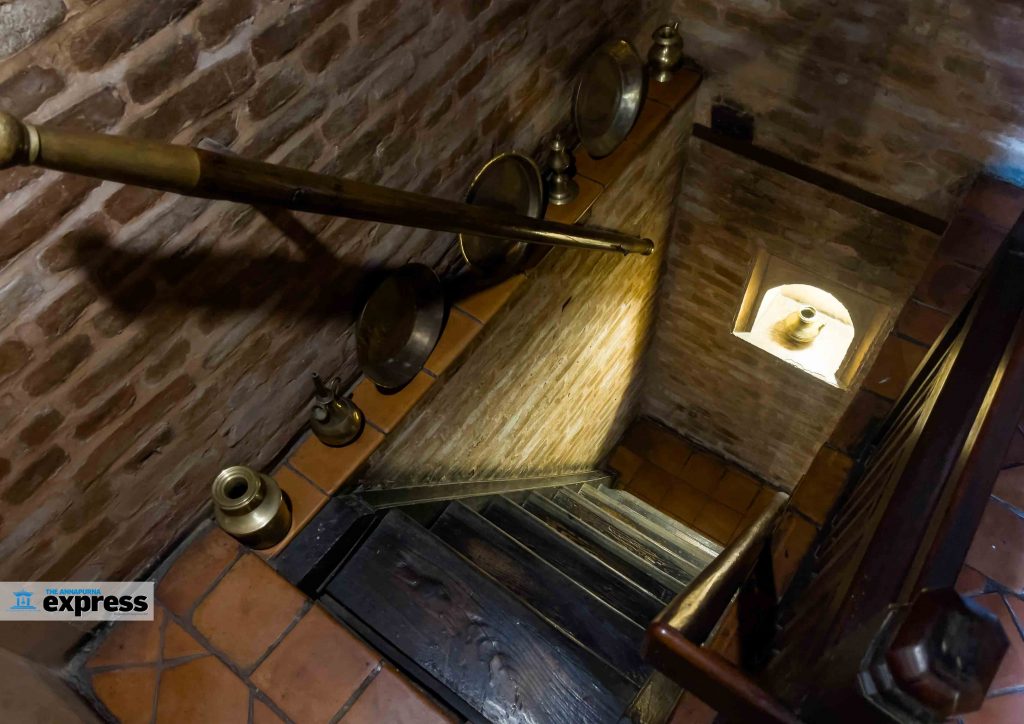 “When I first joined the heritage conservation field, I was called insane for passing up a comfortable life and career in Europe and choosing a zero-income sector,” says Puri.
“When I first joined the heritage conservation field, I was called insane for passing up a comfortable life and career in Europe and choosing a zero-income sector,” says Puri.  About 60 percent of this building required new construction, with the remainder achieving satisfactory results through retrofitting. Original structural components were carefully removed and reused wherever possible. This restoration project was completed in roughly a year and a half.
About 60 percent of this building required new construction, with the remainder achieving satisfactory results through retrofitting. Original structural components were carefully removed and reused wherever possible. This restoration project was completed in roughly a year and a half.
Quickly thereafter, the home gained traction and received unexpected appreciation and recognition. Items that highlight Nepali culture and tradition are on display at Namuna Ghar. The main objective for restoring and promoting Namuna Ghar with this approach is to inspire Nepali people to appreciate and conserve their rich and beautiful heritage. 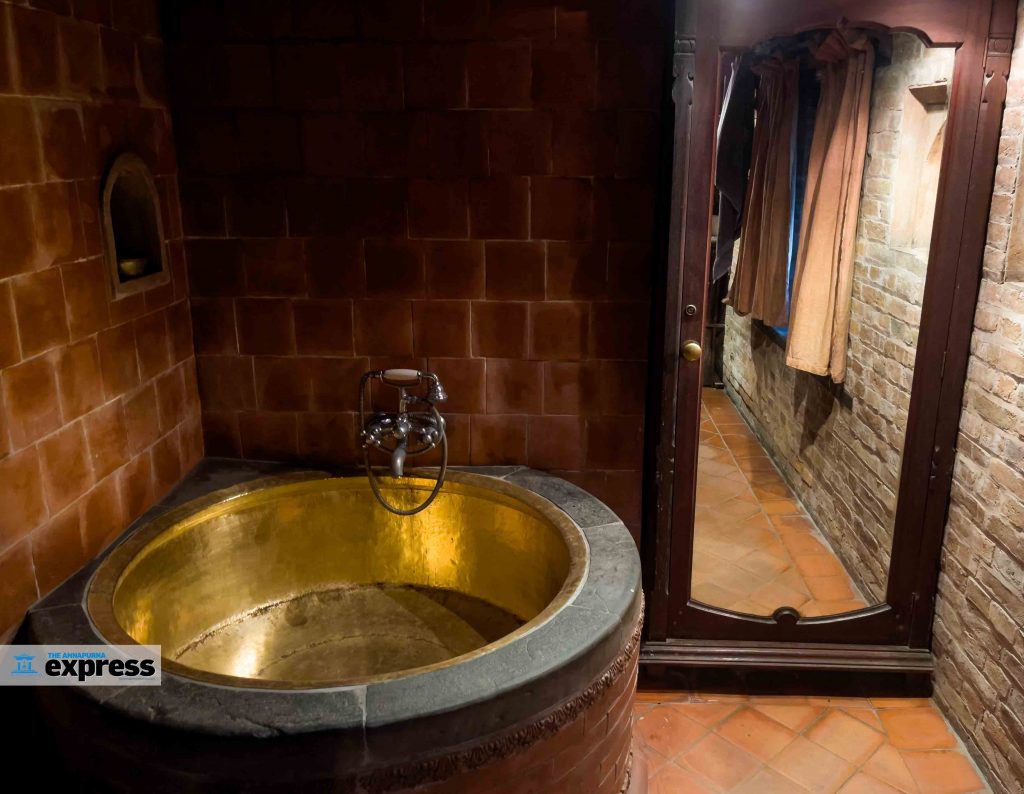 “I also started a homestay at the Namuna Ghar, and it was from here, the concept of bed and breakfast took off in Nepal,” Puri adds.
“I also started a homestay at the Namuna Ghar, and it was from here, the concept of bed and breakfast took off in Nepal,” Puri adds. 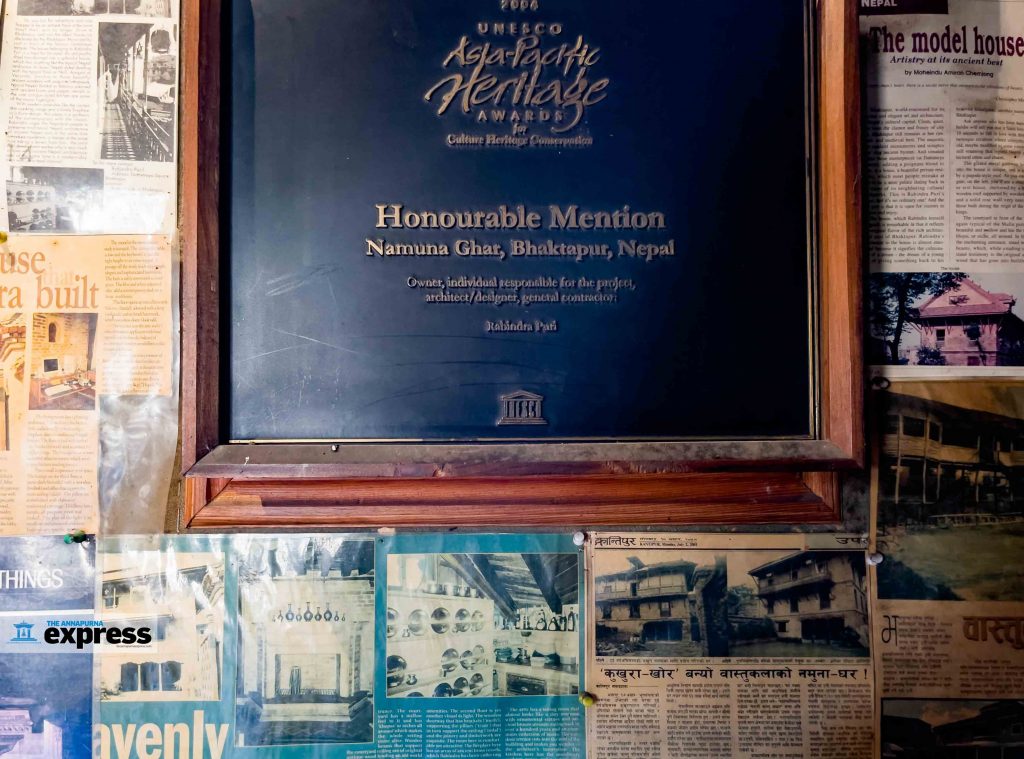

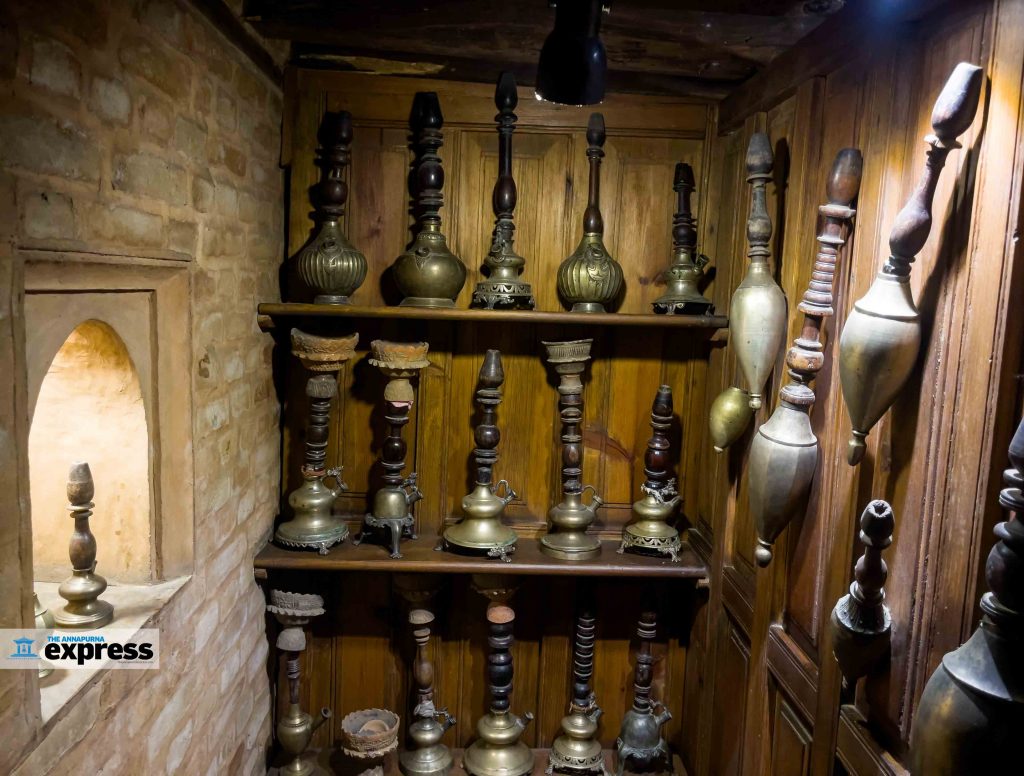
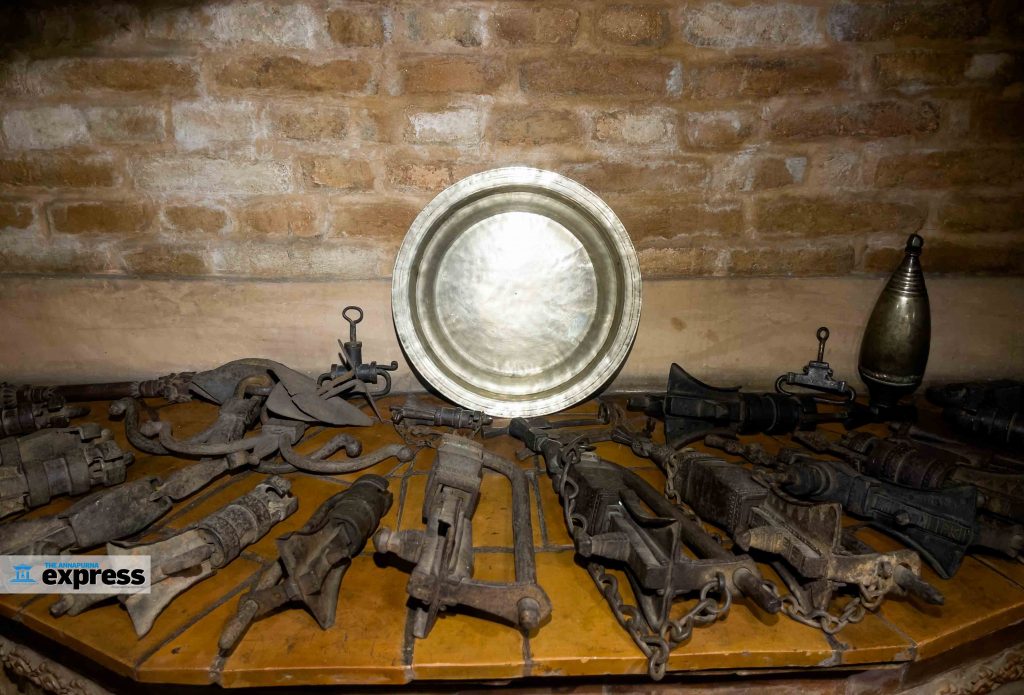

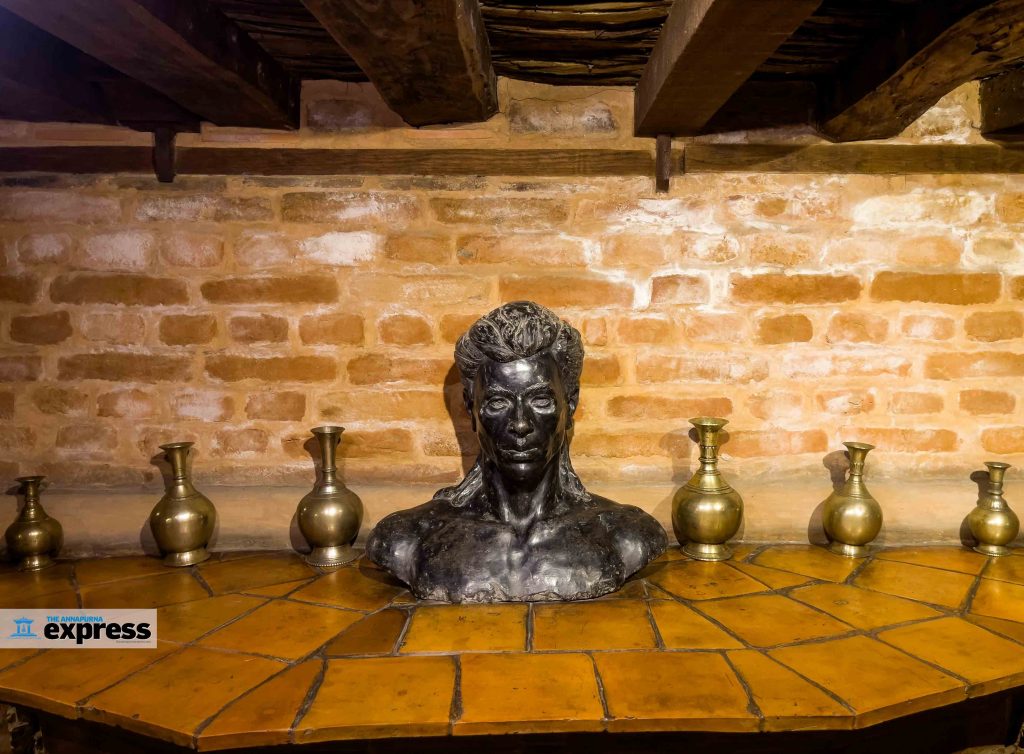
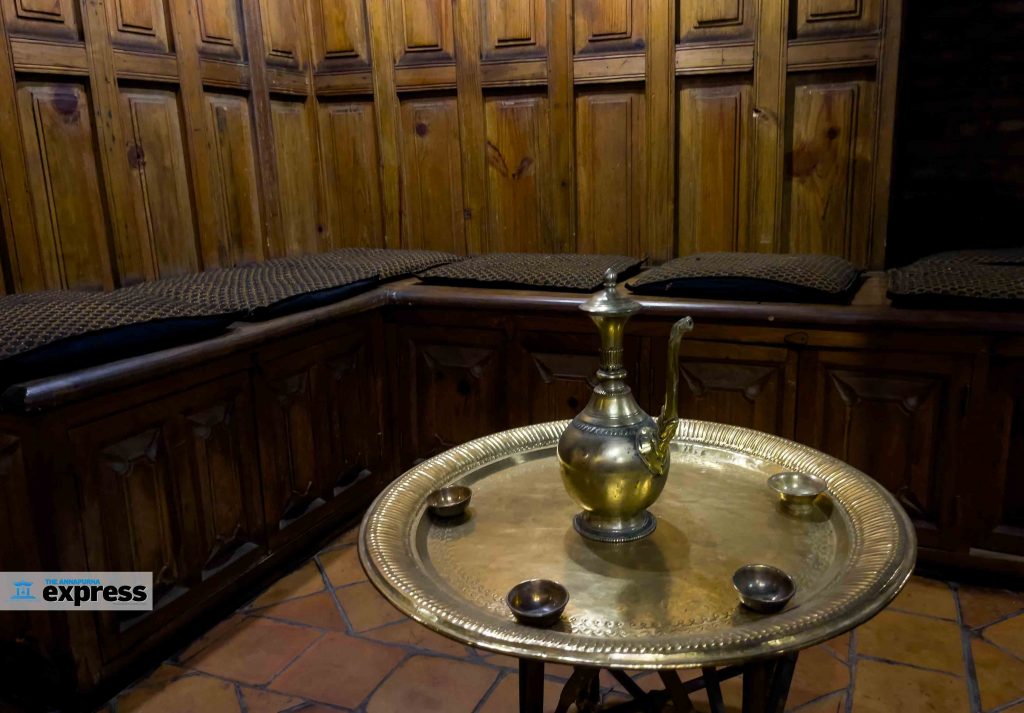
Pradeep Gyawali: Government has lost international credibility
As the CPN (Maoist Center) supported Nepali Congress over CPN-UML in the presidential poll, UML left the government and Congress joined the Pushpa Kamal Dahal-led cabinet. Pratik Ghimire of ApEx talked to UML leader Pradeep Gyawali about the evolving political situation after the poll.
How do you see the current coalition led by Dahal? Will it sustain for five years?
This coalition is unnatural to the core. The coalition partners are together only for petty interests. If they were sensitive toward national interest, why would they drift apart after the presidential poll? And there is no chance of this coalition lasting five years. It will break apart soon and the erstwhile partners will start fighting for their own interests.
Why do you think Dahal betrayed UML?
Consider these three factors. The first one is the fact that Dahal is well-known for his opportunist and volatile behavior. He has done this to every political party and no one knows this better than UML. Yet, we gave him the benefit of the doubt. The second thing is his fear psychosis. He thought his interest couldn’t be served while being with UML as we had a mechanism where the government had to come clean on its wrong moves at coalition partner meetings.
We talked about service delivery, good governance and national interest, which Dahal didn’t want to follow. The involvement of international powers is the third factor. We saw the officials of foreign nations manipulating the government to serve their national interests. If we were in the government, we would not have let such things happen. As for Dahal, he wanted to serve international interests.
How will UML play the role of the main opposition?
As the main opposition, we will have two major roles to play. For us, this is the right time to reorganize the party. For a long time, we were in the government and unable to build the party properly. We will utilize this time to rebuild the party from the grassroots. We have already started campaigns to make the UML a strong national force. We will raise people’s voices from the parliament and from the streets, if necessary. We will not let the public suffer. We will do everything to make the government accountable.
Is there any possibility of an NC-UML coalition?
After the Nov 20 poll results came out, the Congress and the UML should have collaborated to form a government in the national interest because the people had given us—not the small parties—the mandate. We formally proposed the Congress for a coalition, but they ignored us. Amid public frustration, such a government had become necessary for democracy and stability of the political system. But then the Congress had other plans. The scenario has changed and there’s no chance of an NC-UML coalition, for now. But if the Congress wants to form a coalition with us in the national interest, we are open for discussion.
As a former foreign minister, what do you have to say on this government’s foreign policy?
I don’t have much expectations from this government. I hope that they don’t make things worse. None of the neighbors trusts us. We have lost international credibility. We were not invited to the Raisina Dialogue. We were invited to the Boao Forum, but the prime minister shunned it. We are in a difficult situation. Even with the US, the Maoist party, as a partner in the then coalition government, made the MCC Compact controversial by signing on it, then protesting against it and finally playing a role in its endorsement through the parliament. Why would the international community believe us?
And recently, the way Dahal canceled the visit of the incumbent foreign minister to the Human Rights Council’s conference and sent an unauthorized person to the event has made our foreign policy and presence immature. That conference was very important for us as we could have shared so many things with the international community regarding our progress and achievements on the human rights front.


